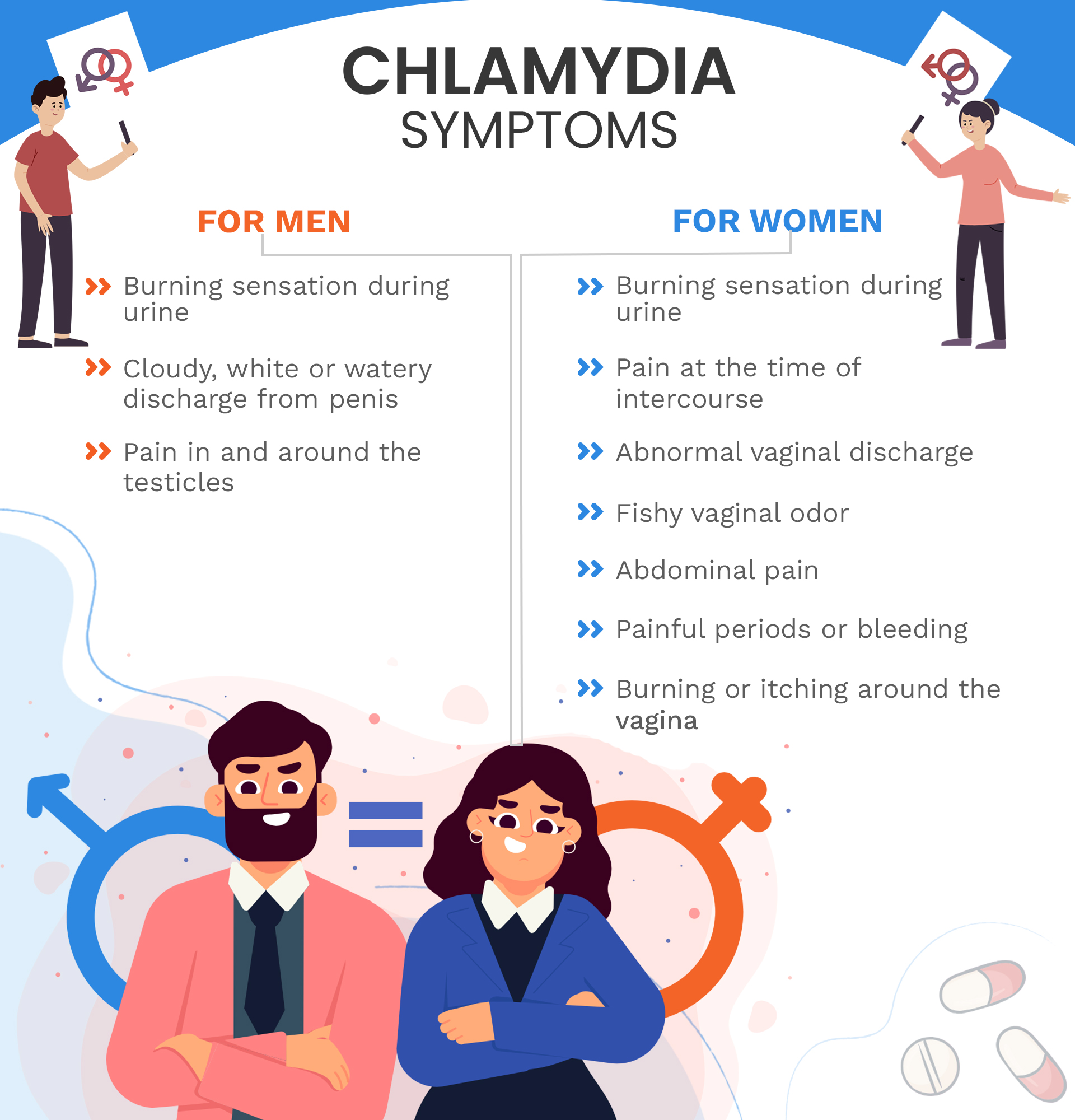
Monday to Friday 9:00 AM - 6:00 PM
Saturday to Sunday 10:00 AM - 2:00 PM
 Book Appointment
Book Appointment

Monday to Friday 9:00 AM - 6:00 PM
Saturday to Sunday 10:00 AM - 2:00 PM
 Book Appointment
Book Appointment

Chlamydia is a type of sexually transmitted infection (STI) that often does not exhibit symptoms in males and females. It is essential to consult a doctor for testing and prompt treatment if an exposure is suspected, or you have had sexual contact with somebody diagnosed with the infection.
Chlamydia ranks among the most common STIs in the UK, with many individuals unaware of their infection due to its often asymptomatic nature. Unlike the misconception that Chlamydia can remain dormant, it is more accurate to say that symptoms may not be noticeable, which can lead to untreated infections and potential health complications. This blog covers the transmission, detection, prevention, and treatment of Chlamydia.
Chlamydia can infect multiple parts of the body, including the:
Testing for Chlamydia is essential if you notice any change in discharge, which may indicate an infection. Chlamydia-related discharge can be yellow and may contain pus or mucus.

The primary treatment for chlamydia involves antibiotics such as doxycycline and azithromycin, which are effective in approximately 95% of cases. Alternatives are available for those who cannot take these antibiotics due to allergies or pregnancy. Treatment duration and dosages vary depending on the medication prescribed.
Chlamydia bacteria are developing resistance to antibiotics, highlighting the importance of ongoing research into new treatment options, including vaccines.
Untreated chlamydia can lead to severe health issues, including pelvic inflammatory disease (PID), infections, reactive arthritis, complications during pregnancy, and infertility.
Chlamydia can be detected through various tests, including blood , urine, and swab tests, each with its own timeframe for results. It's a myth that chlamydia can remain "dormant"; it is more accurate to say that symptoms may not be noticeable immediately.
It is possible to transmit chlamydia even without symptoms, emphasising the importance of safe sex practices and regular testing.
The incubation period for chlamydia is typically 1-3 weeks after exposure, but symptoms it can sometimes take longer to appear.
Late-stage chlamydia refers to the spread of infection to other parts of the body, causing additional symptoms such as inflammation and pain.
Consult a healthcare professional if you experience symptoms, suspect exposure, or have had unprotected sex with someone who may be infected. Regular testing is advised for sexually active individuals, especially pregnant women and those planning to conceive.
Chlamydia is often a "silent" infection, detectable through routine sexual health screening. Early detection and treatment can prevent transmission and reduce the risk of complications. Consult a healthcare professional or a sexual health clinic for advice and testing if you suspect exposure or infection.
